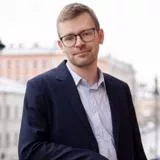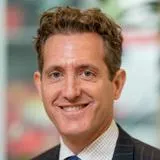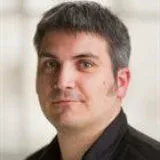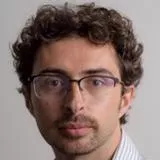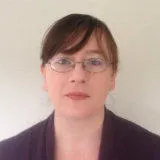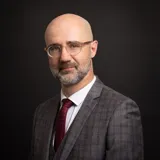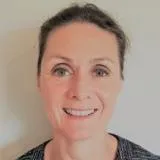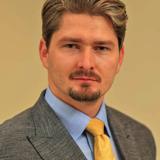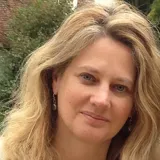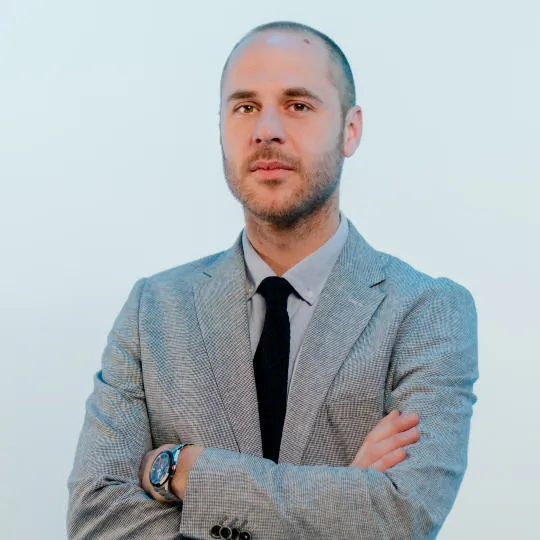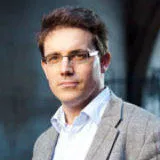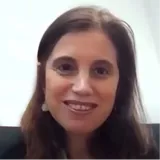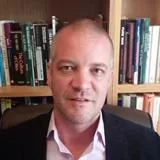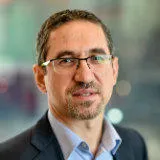28 February 2022
Sharing our expertise and insights on the war on Ukraine
Researchers and academics in our Faculty of Social Science & Public Policy are using their expertise to inform discussion and debate around Russia’s invasion of Ukraine, the ongoing war and its implications across the world.
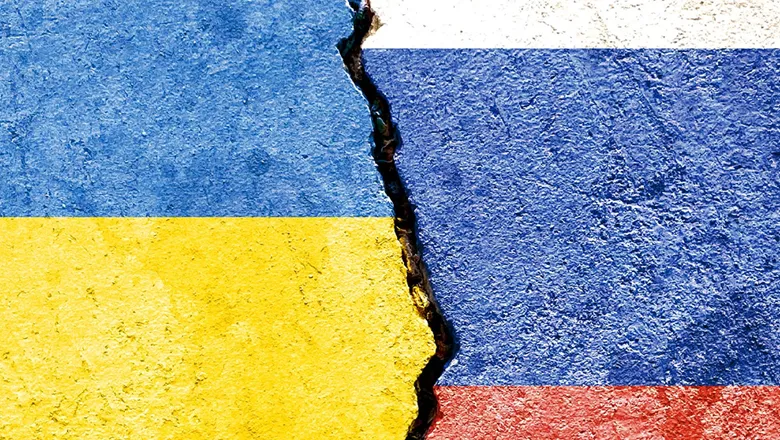
As news broke on 24 February 2022 of the Russian invasion of Ukraine, academics from across the faculty took to social media and as the fighting has intensified they have spoke with broadcast, print and online media all around the world to share their thoughts and analysis of the situation.
Some examples (scroll to the bottom of this article for more) include:
- Professor Rachel Kerr spoke to BBC Radio 4's PM programme about the ICC's investigation into alleged warcrimes by Russia in Ukraine.
- Professor Lawrence Freedman who was quoted in The Financial Times on whether the combination of the nuclear threat and peace talks could offer Putin a way out of the crisis. His analysis in his Substack newsletter called ‘A Reckless gamble” was covered by The Times and the reaction of MI6 head Richard Moore to this analysis was also covered by the Daily Express, Sunday and Daily Telegraph and Daily Mail.
- Rob Lee was quoted in The Daily Telegraph on the first few days of the conflict, by The Sun on the threat of thermobaric rockets, on CNN and abc News about the unprecedented nature of Russia’s military build up close to Ukraine, in The Washington Post on options facing Putin and in The Telegraph on the use of social media such as Tik Tok to document activities on the Russian/Ukraine border. He also was on CNBC talking about why the costs of inaction might feel greater than the costs of escalation for Russia right now. He i
- Professor Sam Greene co-wrote an article for The Washington Post highlighting how President Putin initiates conflict abroad to boost support domestically, but questioned whether this time the Russian leader had gone too far. He also appeared in the Courier Mail in Australia on the potential for more civilian casualties, on abc news on the invasion of Ukraine by Russia, in Euronews, and in The Metro about President Putin’s Donbas address, in The Huffington Post on Putin suggesting two regions in eastern Ukraine should be treated as independent countries, on France24 about Russia calling for NATO and US to curtail its activity in Eastern Europe and in The Guardian on attitudes in Moscow to the crisis. He has also written a series of articles for his Substack newsletter. Professor Greene also shared his views on social media around what might have motivated Russian people to take to the streets, despite the risk of arrest and detention, highlighting the damage it will do to people's livelihoods, the moral shock of those who had not taken the prospect of war seriously and also the Ukrainian heritage of tens of millions of Russians.
- Professor Tracey German of the Department of War Studies wrote a piece for The Conversation about how Russia’s invasion shows it has learned about western responses from past military manoeuvres.
- War Studies Visiting Professor Andrew MacLeod, also writing for The Conversation, explored whether Russia could lose its seat on UN Security Council over the invasion.
- Dr Bence Nemeth wrote a piece for The Conversation on NATO members triggering Article 4 in response to the war.
The war on Ukraine explained: Hear from our experts.
With the war on Ukraine developing rapidly, academics from our School of Security Studies and King’s Russia Institute are sharing their expert analysis as part of our war on Ukraine explained series.
They explore how things got to this point, what we know so far and what might happen next. As developments unfold, we will be adding new posts so keep checking back to keep up with the latest information.
Information on how we are supporting students and staff affected by the invasion of Ukraine is available here, as well as a list of organisations that are seeking financial donations, volunteers and essential items.
Prior to the invasion, amid rising tensions in the region, on February 15, King’s Russia Institute hosted an expert panel event featuring Dr Alex Clarkson, Professor Christoph Meyer, Dr Domitilla Sagramoso, Dr Marc Berenson, Dr Maxim Alyukov, Dr Ruth Deyermond and Dr Adnan Vatansever, to discuss the rising tensions in Ukraine.
They touched on the EU’s longstanding relations with Ukraine and NATO’s engagement in the region, the Kremlin’s perspectives on the Minsk 2 Agreement, Russia’s media strategy, and Ukraine's own political context.
In January, Dr Maxim Alyukov, a research associate at the King’s Russia Institute, published new research on how Russia’s authoritarian regime relies on the political disengagement of citizens to maximise the impact of state-controlled media networks and broadcasts.
The paper, published in the journal Europe-Asia Studies, said repetition of easily-accessible themes and ideas has allowed Russian TV news stations to shape public opinion about the conflict in Ukraine, garnering broad support for President Vladimir Putin and his course of military action in eastern Ukraine starting from 2014.
However, while the suppression of political engagement has created space for state-owned media to shape public opinion and discourse, the research suggested the effects could be short-lived and means any perceived support for the regime is superficial and subject to rapid change.
In January 2022, Dr Ofer Fridman, wrote about the Russian mindset and war in an article published by the Journal of Advanced Military Studies.
Dr Fridman, a Senior Lecturer in the Department of War Studies and Director of Operations at King’s Centre for Strategic Communications (KCSC), demonstrated how Russia blends military and non-military means to achieve its political goals, for example the Kremlin’s decision to introduce economic counter-sanctions and its intervention in the Syrian conflict in 2015, which reveals its strategy of blending war and diplomacy.
On February 17, the Breaking Britain podcast released an episode looking at the future of Russia’s relationship with the US, EU and UK. It features Anton Barbashin, Editorial Director of ‘Riddle Russia’, discussing why relations between Russia and the West have deteriorated so badly, and examine how relations between both sides can be improved again.
Below are further examples of some of the media around the world that have featured the expert comment and analysis of our academics on the rapidly-unfolding events:
- Dr Ruth Deyermond appeared on both BBC Radio 4 and BBC Radio 2 about Putin trying to ‘dig himself out of a hole of his own making.’
- Dr Ross Peel was quoted in The Independent on why Russia wanted control of the Chernobyl site.
- Professor Michael Clarke write a piece in The Sun saying time was running out for Putin.
- Dr Ofer Fridman spoke on CNN about the nature of Russian hybrid warfare, discussed Israel's position in Russia and Ukraine border tensions in The Jerusalem Post and was in The i on whether Russia would attack the UK over the imposed sanctions.
- Dr Tim Stevens spoke to the Evening Standard’s Leader podcast about the cyber attack capabilities of the Russian government and hacking groups inside Russia.
- Dr Joseph Devanny in The Daily Telegraph on Putin’s cyber warfare warning and wrote a piece for The Independent on the role of cyber attacks in the conflict.
- Dr Andy Corbett in The i on NATO reinforcements being sent to the Russia-Ukraine border.
- Dr Maria Varaki featured on Sky News, BBC Newsnight and BBC news, not to mention various BBC radio programmes discussing Russian war crimes.
- Dr Natasha Kuhrt was on CBC News discussing Putin’s nuclear threat and China in relation to the war and in The i on the concerns for the West of a Russia-China axis.
- Dr Zeno Leoni on BBC World News on China's position in relation to Russia and in The Independent on the fine line that China is walking between Russia and the West over Ukraine.
- Professor Tracey German was quoted in The Daily Express on President Biden opposing sanctions on a Russian pipeline.
- Professor Harsh V Pant commented in The Independent on the dilemma the war was causing for India.
- Dr Andreas Krieg was quoted in The Independent on what the conflict could mean for gas supplies, by Al Jazeera on the implications of a Russian invasion of Ukraine, on Euronews about how events in Ukraine could affect Qatar and in Middle East Eye on whether Qatar could help the EU if the conflict affects gas supplies.
- Dr Mark Hilborne was quoted in The Financial Times on what the Ukraine tensions tell us about relations between Russia and China.
- Dr Domitilla Sagramoso on NBC about a speech by President Joe Biden on the potential response to an invasion of Ukraine by Russia.
- Professor Gulnaz Sharafutdinova in the Greek publication Ethnos about whether Russia actually wanted “a real war” and the challenges of resolving the current crisis. In La Croix about how Putin got stuck in a 'victimhood vision'. Examining Putin's claims of 'historical unity' between Ukraine and Russia for Al jazeera and in The i about the impact of sanctions on the Kremlin. In a special interview with the ICEUR think tank in Vienna. In a report for CNN on sweeping sanctions.
- Jeevun Sandher on BBC5Live talking about how the UK should react to the Russian invasion of Ukraine and whether sanctions are effective.
- Dr Pablo de Orellana spoke to the BBC World Services’s BBC Mundo about Putin’s nationalist ideas.
- Dr Adnan Vatansever on the BBC World Business Report on sanctions against the Putin regime. In a piece on the West's addiction to Russian oil for the New Statesmen.
- Dr Maxim Alyukov appeared with Professor Tracey German on the Beyond Headlines radio and podcast at the Munk School of Global Affairs and Public Policy (University of Toronto). Dr Alyukov also wrote for openDemocracy on Russia and opinion polls and appeared on BBC 4 Radio Briefing Room.
- Dr Marc Berenson for the Conversation on the rise to prominence of Volodymyr Zelensky. In an interview with ICEUR, a Vienna-based think tank, and as a guest on CGTN Europe.

